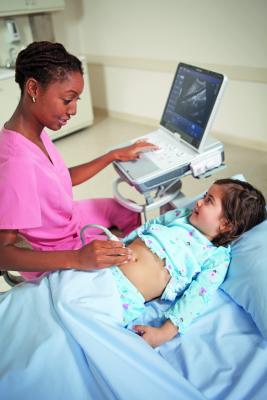January 28, 2014 — A paper in World Heart Federation’s journal
Global Heart advocates for the inclusion of
ultrasound in medical
education programs to fully realize its benefits as early as possible. The review is by J. Christian Fox, professor of clinical emergency medicine and director of instructional ultrasound, University of California Irvine School of Medicine and colleagues.
"Emergency physicians, intensivists and other acute care clinicians are using and relying on critical care ultrasound imaging to better triage and diagnose patients at the point of car,” the authors said. “As this new frontier of medicine continues to forge forward using this new and improving technology, we strongly believe in integrating ultrasound training earlier into the medical education curriculum."
They outline how ultrasound can help healthcare workers diagnose a number of medical scenarios such as patients with chest pain, shortness of breath and shock. However, they also caution that "it is sometimes difficult to determine the difference between acute versus chronic problems in an individual. This can be a confounding finding in an acute setting, in the event that a physician needs to make a treatment decision that could be attributed more to a chronic diagnosis."
They rely on findings to show ultrasound is comprehensive and accurate, and can provide earlier detection of potentially life-threatening conditions. The authors also refer to a study by Kobal et al demonstrating the potential in extending ultrasound education into the medical school curriculum. The study concluded that not only were students capable of capturing images of cardiac pathology on patients, but their diagnostic skills were far superior in detecting valvular disease, left ventricular hypertrophy and cardiac dysfunction than those of trained cardiologists performing physical exams.
“It is argued that point-of-care ultrasound should be, rather than optional, an essential part of any examination to help physicians develop and narrow down their differential diagnosis."
For more information: www.globalhealth.com


